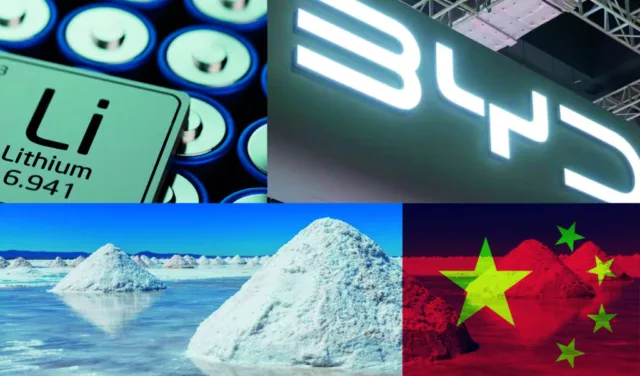
Embroiled in a scandal over labor rights violations in Brazil that sounded the alarm bells worldwide, Chinese automaker BYD shows no signs of slowing down. Reuters’ recent revelation that the electric vehicle (EV) company had acquired mining rights in Brazil’s lithium-rich region highlights BYD’s strategy to strengthen its vertical integration outside of China and secure its presence in South America’s vast mineral resources.
This is bad news for the region, experts say, as Chinese companies have been accused of hundreds of human rights and environmental violations linked to their mining interests for green-energy technology worldwide. China’s tendency for opaque extractive contracts is associated with allegations of indigenous rights violations, water pollution, environmental destruction, and unsafe working conditions, among many other accusations.
According to Reuters, in late 2023, BYD acquired mineral rights for two plots of land in the Jequitinhonda Valley, known as the “lithium valley,” through its subsidiary, Exploração Mineral do Brasil, created that same year. The acquisition had not been reported previously.
“China has bought some mining rights, just like other companies from other countries are also buying. What I find interesting about this aspect of BYD is that it was only reported after the purchase, and by Reuters. And, on the other hand, the other companies, Canadians, Australians, we can see how they progress while BYD was a surprise,” Elaine Santos, a researcher focused on the exploitation of strategic raw materials and post-doctoral fellow at the University of São Paulo’s Institute for Advanced Studies, told Diálogo.
The discovery that BYD has acquired land rich in lithium has raised concerns in the country. Recently, BYD’s construction site for a factory complex in Camaçari, Bahia, projected to produce 150,000 electric cars per year, was marred by accusations of labor abuses.
On the construction site, the Public Ministry of Labor rescued 163 Chinese workers in what it described as “slave-like conditions.”
In addition to the severe lack of hygiene, housing, and food, the Public Prosecutor’s Office also accused Jinjiang, the BYD contractor in charge of the construction project, of withholding the employees’ passports and 60 percent of their salaries. The site is just a 12-hour drive from the Jequitinhonha Valley.
The issue highlights China’s disregard for human rights and international norms and its unwillingness to abide by them. The situation also reinforced another problem characteristic of China-led projects: their failure to prioritize local labor, preferring instead Chinese labor, raising concerns about the economic and social impact in host countries.
Just 10 years ago, a Chinese company bought the country’s first stake in an extraction project within the so-called lithium triangle — made up of Argentina, Bolivia and Chile — that together hold most of the world’s lithium reserves. According to the BBC, China has at least 11 mining projects for green technologies in the lithium triangle alone, and more than 60 mining interests, outside of China, worldwide, many facing accusations of abuses.
“Chinese companies are making acquisitions because, for them, it’s all about profit,” Aditya Lolla, director of the Asia program at Ember, a U.K.-based environmental think tank, told the BBC. “As a result, Chinese workers will continue to be sent to mining projects all over the world and, for them [Chinese companies], these projects most often represent an opportunity to make good money.”
For Margaret Myers, director of the Asia and Latin America Program at the U.S.-based think tank Inter-American Dialogue, caution must be exercised about excessive dependence on China, especially if there is no counterpart for local development. “The region runs the risk of becoming trapped in this dependency and failing to develop its own competitiveness,” she said. “If there isn’t an effort to demand that investors offer technology transfer and present initiatives for education and incorporate local labor, the region won’t be able to accelerate its development in these sectors,” Myers told the Nexo platform.
While companies worldwide are being encouraged to adopt alternative technologies to improve lithium production efficiency, Myers said that Chinese investments could provoke new socio-environmental conflicts. “This is another major challenge for the region, because governments, companies, and civil society organizations must have the conditions for negotiation and dialogue to make projects viable in a sustainable way.”








